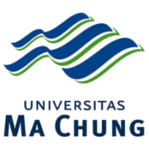SOLIDARITY IN THE TOURING NARRATIVE OF S.U.U.A.L (SCOOTER UIN ULUL ALBAB) MALANG VESPA COMMUNITY: A CRITICAL DISCOURSE ANALYSIS APPROACH
Abstract
Vespa community is known for its solidarity value and S.U.U.A.L Malang is no exception. The application of this value can be observed from the activities or experiences by the group members. In this research, the touring experience of the community is taken as the data since during the trip, there are some inconvenient moments and unexpected accidents that happen. The concept of solidarity can be traced through how the group members face those moments. In this research, the data are divided into five categories based on the situation: natural obstacles, technical problems, resource limitations, the unexpected accident, and the inconvenient situation. To uncover the solidarity concept of the community, Critical Discourse Analysis (CDA) is applied to the narratives of three narrators which are the group members of S.U.U.A.L. The result shows that among five types of solidarity (cooperation, fairness, altruism, trustworthiness, and considerateness), there are two types that are found in the touring experiences by the group members, namely, fairness and altruism.
References
Arifin, R. (2019, April 5). Hanya Italia yang bisa kalahkan komunitas vespa di Indonesia. Oto Detik. https://oto.detik.com/komunitas-motor/d-4498248/hanya-italia-yang-bisa-kalahkan-komunitas-vespa-di-indonesia
Black, J. (2019, September 4). Safety: How to ride a motorcycle in the rain. https://www.rideapart.com/features/254439/safety-how-to-ride-a-motorcycle-in-the-rain/
Chit, Y. Z. (2020). Prosocial behaviours of members from student voluntary clubs in Sagaing University of Education. Indonesian Journal of Social and Environmental Issues (IJSEI), 1(2), 63–68. https://doi.org/10.47540/ijsei.v1i2.19
Decety, J., Bartal, I. B.-A., Uzefoysky, F., & Knafo-Noam, A. (2016). Empathy as a driver of prosocial behaviour: Highly conserved neurobehavioural mechanisms across species. Philos Trans R Soc Lond B Biol Sci, 1686(20150077). https://doi.org/10.1098/rstb.2015.0077
Durkheim, E. (1984). The division of labor in society. Simon and Schuster.
Fairclough, N. (2001). Language and power.
Featherstone, D. (2012). Solidarity: Hidden histories and geographies of internationalism. Zed Books Ltd.
Fetchenhauer, D., Flache, A., Buunk, B., & Lindenberg, S. (2006). Solidarity and prosocial behavior: An integration of sociological and psychological perspectives. https://doi.org/10.1007/0-387-28032-4
Forchtner, B. (2021). Introducing ‘narrative in critical discourse studies.’ Critical Discourse Studies, 18(3), 304–313. https://doi.org/10.1080/17405904.2020.1802765
Hananto, P., Hartanto, A., Pramadi, Y., Ubaidillah, U., & Marzuki, A. A. (2020). Critical discourse analysis of community reports on Public Complaints Information Systems LAPOR! (lapor.go.id). Proceedings of the Proceedings of the 5th International Conference on Social and Political Sciences, ICSPS 2019, 12th November 2019, Jakarta, Indonesia. Proceedings of the 5th International Conference on Social and Political Sciences, ICSPS 2019, 12th November 2019, Jakarta, Indonesia, Jakarta, Indonesia. https://doi.org/10.4108/eai.12-11-2019.2293528
Herman. (2018, September 13). Indonesia miliki komunitas vespa terbesar kedua di dunia. https://www.beritasatu.com/otomotif/510319/indonesia-miliki-komunitas-vespa-terbesar-kedua-di-dunia
Hussain, S. (2015). Critical discourse analysis: Demystifying the fuzziness. The International Journal Of Humanities & Social Studies, 3, 242–249.
Johnson, D. P. (2008). Contemporary sociological theory: An integrated multi-level approach. Springer Science & Business Media.
Khoirudin, A. (2013, March 22). Komunitas vespa Indonesia terbesar kedua setelah Italia. Otosia. https://www.otosia.com/berita/komunitas-vespa-indonesia-terbesar-kedua-setelah-italia.html
Komter, A. E. (2005). Social solidarity and the gift. Cambridge University Press.
Krunke, H., Petersen, H., & Manners, I. (2020). Transnational solidarity: Concept, challenges and opportunities. Cambridge University Press.
Laitinen, A., & Pessi, A. B. (2014). Solidarity: Theory and practice, an introduction. 30.
Mardianinta, W. (2016). Perilaku prososial pada scooterist vespa ekstrim di Semarang. 15.
Muttaqin, S., Sahiruddin, S., & Rodliyah, I. N. (2019). Language variations in Madurese across regions and age groups: Looking at syntactic and lexical variations among regions and age groups. KLAUSA (Kajian Linguistik, Pembelajaran Bahasa, Dan Sastra), 3(01), 45–56. https://doi.org/10.33479/klausa.v3i01.193
Stürmer, S., Snyder, M., & Omoto, A. (2005). Prosocial emotions and helping: The moderating role of group membership. Journal of Personality and Social Psychology, 88, 532–546. https://doi.org/10.1037/0022-3514.88.3.532
Suara Jelata. (2019, February 17). Touring vespa Sopa Sinjai: Tidak asyik jika motor tidak mogok. https://suarajelata.com/2019/02/17/touring-vespa-sopa-sinjai-tidak-asyik-jika-motor-tidak-mogok/
Sujatmiko, S. (2020). Van Dijk modelling on critical discourse analysis (A study on Mata Najwa Program ‘Gara-Gara Tagar’ In Trans 7 in September 5th 2018). ELTICS : Journal of English Language Teaching and English Linguistics, 5(1). https://doi.org/10.31316/eltics.v5i1.533
Van Hoyweghen, I., & Aarden, E. (2021). One for all, all for one? Containing the promise of solidarity in precision medicine. Critical Public Health, 0(0), 1–12. https://doi.org/10.1080/09581596.2021.1908958
Wahyudi, A. (2018). Interpretasi hermeneutika: Meneropong diskursus seni memahami melalui lensa filsafat modern dan postmodern. KLAUSA (Kajian Linguistik, Pembelajaran Bahasa, Dan Sastra), 2(02), 51–79. https://doi.org/10.33479/klausa.v2i02.150
Wicaksono, D., Fathurochman, R. A., Riyanto, B., & Wicaksono, Y. (2014). Analisis kecelakaan lalu lintas (Studi kasus—Jalan Raya Ungaran—Bawen). Jurnal Karya Teknik Sipil, 3(2), 345–355.
Ye, D., & Tang, L. (2016). Discourse control and power—Foucault’s discourse control principle. https://doi.org/10.2991/iccsae-15.2016.31
Zhu, J., & Thagard, P. (2002). Emotion and action. Philosophical Psychology, 15(1), 19–36. https://doi.org/10.1080/09515080120109397
Open Access Policy
This is an open access journal which means that all content is freely available without charge to the users or their institution. Users are allowed to read, download, copy, distribute, print, search, or link to the full texts of the articles, or use them for any other lawful purpose, without asking prior permission from the publisher or the author. This is in accordance with the BOAI definition of open access.
![]() This work is licensed under a Creative Commons Attribution-ShareAlike 4.0 International License.
This work is licensed under a Creative Commons Attribution-ShareAlike 4.0 International License.

















